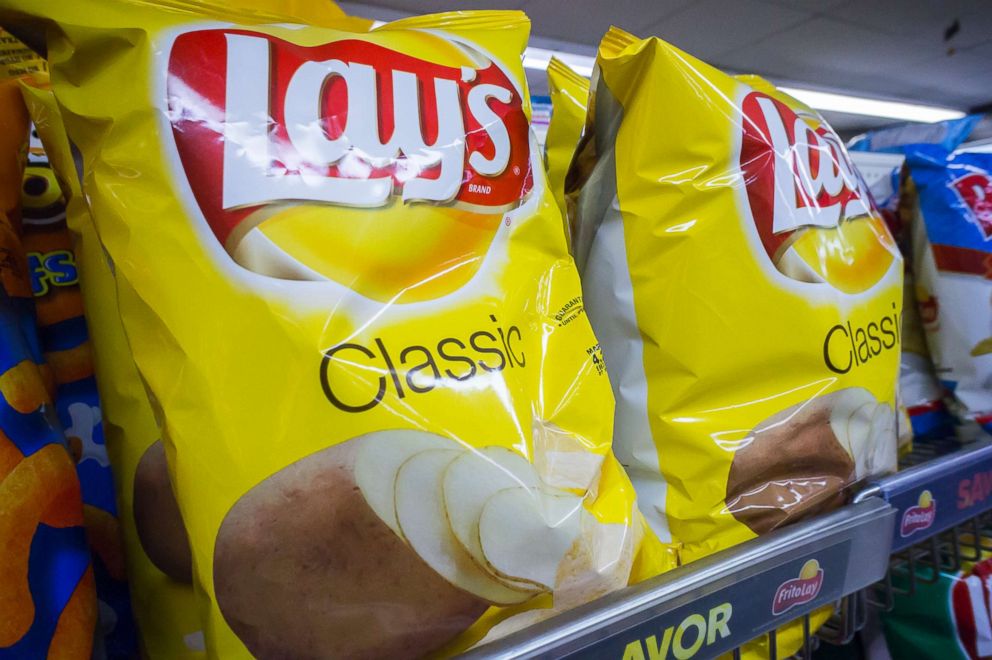Source: ABC News
It's an American-made classic by an American inventor that has become a summertime staple for any barbecue table: Lay's potato chips.
H.W. Lay was a traveling salesman during the Great Depression when he started peddling chips out of the back of his Model A in 1931. It was how he made a living across the Southeast, said Chris Quinn, senior vice president of sales at Frito-Lay.
"He believed in giving the most affordable prices and the highest quality products at an arm's reach of every consumer," Quinn said. "Lay's became the first national brand."
Around the same time, C.E. Doolin was buying the recipe for another American classic: Frito corn chips. Doolin started making them out of his mother's kitchen. Nearly three decades later, the two of them joined forces to create Frito-Lay.
It was 1961. Workers inspected the chips, which went for 10 cents a piece, before bagging them up.
1965 FIRST BBQ CHIP: Workers inspected the chips, which went for 10 cents a piece, before bagging them up.
Now, years later, in 2018, not much has changed. The potatoes still come from farmers across America. Quinn said Frito-Lay sourced from 120 different farms in 25 states including Florida, Texas, North Carolina, Wisconsin, North Dakota, Washington, Maine and California.
Frito-Lay said Michigan and Wisconsin were its largest growing areas.
"We source these products locally and we produce them locally and get them straight into the store in a matter of days," Quinn said.
The farmers at Black Gold Farms in Live Oak, Florida, said they've been harvesting potatoes for four generations. CEO Eric Halverson said his great-grandpa had started growing potatoes in 1928.
"We're potato people," he said. "We enjoy potatoes."
The potatoes at Black Gold Farms are loaded and trucked two and a half hours north to Perry, Georgia, where 1,230 workers are employed at just one of Frito-Lay's 30 manufacturing plants.
There, four to five potatoes go into every bag of Lay's potato chips.
 Richard Levine/Corbis via Getty Images
Richard Levine/Corbis via Getty Images
Quinn said there was a ton of pride felt by the farmers and workers of Frito-Lay, knowing the hard work they put into their products.
At the Perry facility, the largest Frito-Lay plant in the U.S., Amber Hightower, a warehouse performance manager for five years, said that she and her husband played a little game in the supermarket.
"We like to look and see what Frito-Lay products are in the [shoppers'] basket and kinda count them and see, you know, people out in the grocery store," she said. "People don't realize how many products we make."